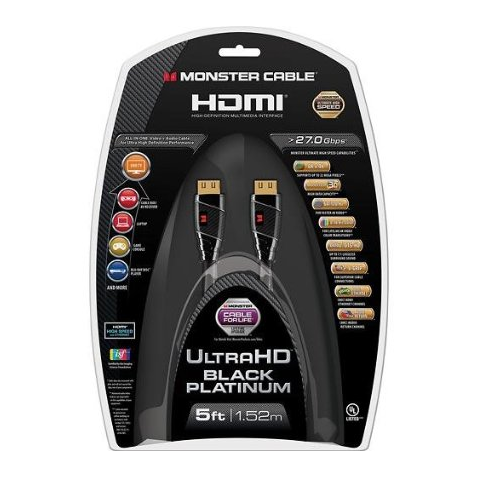Capitalism and consumerism
After they have sold you a source, amp, speaker, which many keep for years, what next to sustain cash flow?
Cables
Power products
Magic dots, etc.
They create solutions to non-existent problems.
I have no issue with any of it. They are not scamming widows out of savings.
Caveat emptor
Due diligence
If too good to be true, likely isn't
If you do not understand technical documentation, don't buy based on it
What I don't understand is where the FTC is in all of this? There are laws in the U.S. for implied warranty and fitness for a particular purpose, and from my limited legal understanding these are baked into common law, or even by statute in many states. Disclaiming the implied warranty in the written warranty doesn't hold up in most states. Meaning: If a company sells a product with the claim that it does X, and it doesn't do X, then the buyer has a valid warranty claim no matter what the manufacturer disclaims in the fine print. If it does not serve the purpose for which it was advertised, it fails its implied warranty.
That's why most purveyors of supplements state "this product is not sold to diagnose, treat, or cure any disease" in addition to a money-back guarantee. They put that there because the FTC (and probably the FDA) required them to. I don't understand how a seller of magic dots, rocks, grounding boxes, and the like avoid having to add a similar disclaimer, and I can only think it's because nobody has ever filed a complaint or brought suit. For a $50 magic dot, nobody is likely to do that. But for a $10,000 grounding box (or whatever the price was--I blocked it), I would think the FTC would be all over it.
Some of the claims I've seen appear to me to be fraudulent, not just failing of their implied warranty.
A $10,000 power cord at least carries power, so if it carries power it meets its implied warranty. The PS Audio stuff doesn't improve anything but at least it does what it claims to do. But the magic dots, rocks, bricks, grounding boxes and stuff like that?
There are placebo products in every industry, from gasoline additives to magic mattresses to roof insulation products. Many of those are no longer on the market, because the FTC stepped in, or the press did an exposee, or there were so many warranty returns the company went belly up. Shinola put "Made in Detroit" on their watches that used Swiss or Asian movements and the FTC thumped them. They were only assembled in Detroit. How does the audio business avoid that sort of scrutiny?
I'll answer my own question: Buyers insist there is a difference, apparently on the basis that there must be. MF once, in a video, mentioned his Ted Denney (no relation, thank God!) whatever devices and said, "I can hear the difference." The implication is that if you can't hear the difference, you aren't good enough. So, people hear the difference because they don't want to be any less skilled at listening than MF. But they know in their heart of hearts it's BS, or they wouldn't resist properly controlled subjective testing as emotionally as they do.
That's how these purveyors get away with it. Sure, TD's company offers in-home trials, but the claims of purpose for the magic dots include adding/removing EM fields by placing the thingie near the equipment, to which it will become inductively coupled. (Any unpowered coil will be inductively coupled to a field if there is one, so, uh, what?)
Readers should realize that the magazines represent their customers, and their customers are their advertisers, especially with content free for reading on the Internet. So, though I have no doubt that MF believes what he says, there will be little editorializing away from it even if the other editors roll their eyes. The last such I can recall was when Gordon Holt stated that the high-end had ruined the audio business by severing the connection between measured performance and subjective evaluation for too many products--the opposite extreme of what he complained about in the 70's when he started
Stereophile as a place where subjective listening could accompany measured performance on equal footing. JA measures things, but I doubt he would measure any of these real snake-oil products and if he did, he would probably feel compelled to pull his punches in his written comments to avoid the fallout. I'm sure he would deny that--I would if I were he--but the acceptance of these silly products has slowly migrated to its present silliness over several decades, and we don't always notice.
So, we have no fourth estate in the audio industry, and a viable fourth estate sustains an informed market, which is a
key element of a functioning free market. And because we've had no fourth estate for so long, the market has become extremely distorted as a result of claptrap being repeated endlessly enough that people start to accept it.
Rick "the internet is a poor fourth estate, despite the good work and intentions of people like Amir" Denney


